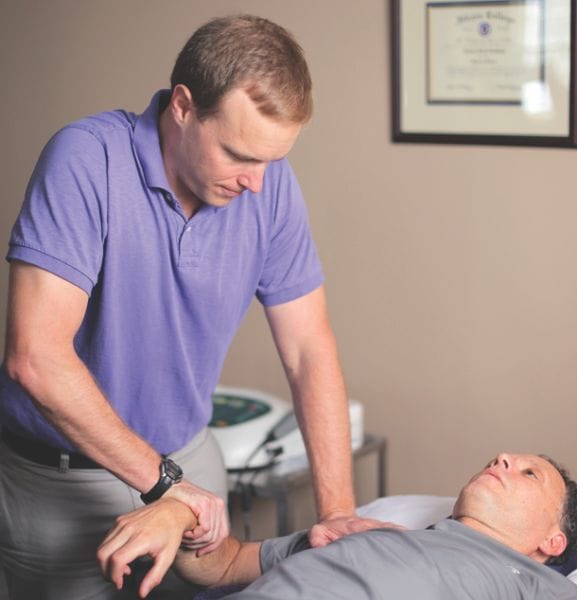
No matter where you hurt, rehabilitative therapies — physical, occupational and speech — can help restore your physical and cognitive abilities and improve your quality of life. Rehabilitative therapies are especially helpful to older adults, for whom physical accidents and medical conditions may be more disastrous.
One of Wesley Woods of Newnan’s unique features is its onsite Rehabilitation Services clinic. Licensed physical, occupational and speech therapists work with patients on an outpatient basis to help them recover from injuries and illnesses and successfully return to their daily lives.
Director of Rehabilitation Services Sheree Rudder says having a clinic right on the premises at Wesley Woods is a great benefit for residents and their families.
“For example, when someone falls and breaks a hip, they would normally be transferred after surgery to a physical rehabilitation center for therapy. Later, the rehab center would discharge the patient to go home, and then they would have to continue therapy at an outpatient clinic,” she said. “Here at Wesley Woods, we meet the patient on their return and one of our therapists does an evaluation of the patient’s condition. Then, we continue their therapy right here. They don’t have to get in a car or call for transportation and go to another place for therapy three times a week.”
In addition to physical, occupational and speech therapies, the Rehab Services staff provides education to residents’ families about the purpose and importance of rehabilitation therapy.
The clinic not only serves Wesley Woods of Newnan residents, but also family members, employees and members of the community. Open five days a week, the clinic averages a case load of between 35-50 patients, most of whom are seen three times weekly. Rudder says that helping people achieve their previous level of independence is the clinic’s primary goal.
“We want to make sure that our residents regain and stay at the highest functioning independent level as possible,” she said. “Our jobs, as physical, occupational and speech therapists, is to help them age in place.”

